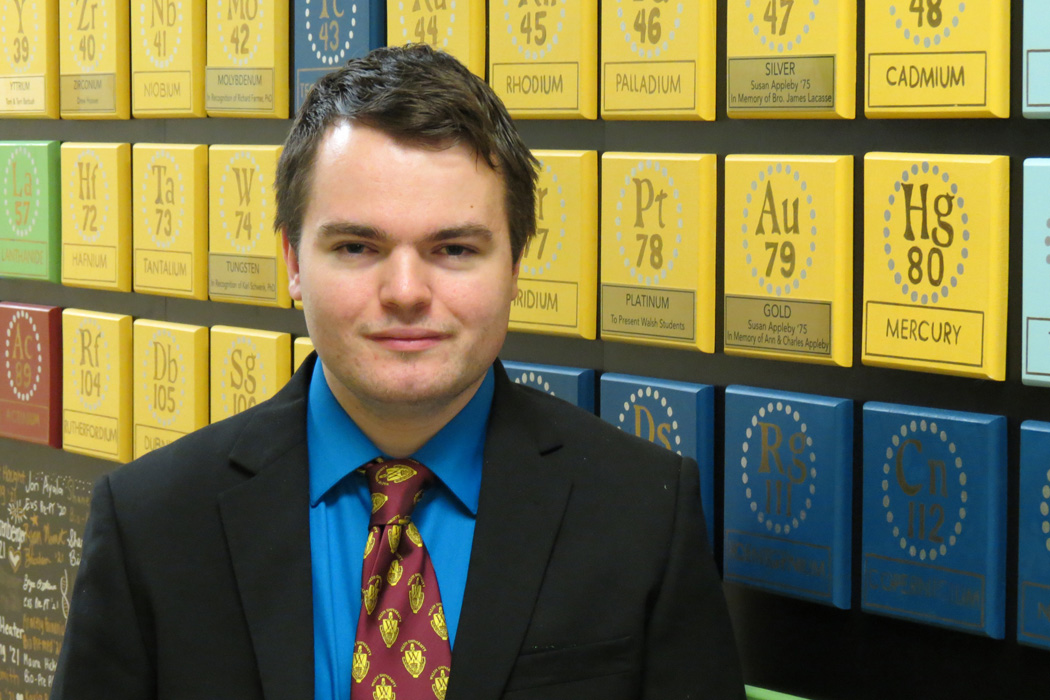
Walsh University is only one of four Ohio universities that offers a degree in bioinformatics, a major that appealed to sophomore Alexander Oswald, but it wasn’t the only deciding factor in his college search. As an aspiring college student with Autism Spectrum Disorder (ASD), he chose Walsh because the campus seemed welcoming and the classes are small. He also received the Founders’ Scholarship, a highly competitive academic scholarship awarded annually to a limited number of students enrolled in Walsh’s Honors Program.
“I’ve always been in private Catholic schools, and I really liked it here when I took a tour,” Oswald said. “I felt this was a much better fit for me than the other schools. I can’t even keep track of all the people who seem to know me by name.”
About one in 44 individuals have been identified with ASD, according to estimates from CDC’s Autism and Developmental Disabilities Monitoring (ADDM) Network, and it is more than four times more common among boys than girls. Many students with ASD have difficulty socializing. Yet, making friends is a vital part of college life. It exposes students to new cultures and experiences while giving them an opportunity to do the same for others. Oswald hopes his story will make an impact by helping someone who might feel shy or overwhelmed at times, or by giving others a glimpse of what he experiences as a student with ASD to bring about understanding.
“I’ve always been a rather socially awkward person,” Oswald said. “It’s just part of being on the Autism spectrum. Most people think I’m just an artistic student – the artsy guy. They don’t know there’s something up with me.”
Oswald is involved in a campus group called Connect U for individuals who, for a variety of reasons, have a hard time connecting with other students. They meet weekly, plan fun activities and stay connected through the Group Me app, a platform they use regularly to share what is going on in their lives. He’s also involved in several campus clubs like the Student Alumni Association and Computer Science Club.
“I try my best to connect with people,” Oswald said. “Over the years, I’ve gone from being very withdrawn to still an introvert but more outgoing. I didn’t like talking about it because I didn’t want people to judge me, but I also want to help people. I’m a guy who cares.”
Students like Oswald who may need extra support have access to quiet testing spaces, tutoring, and weekly mentoring meetings with Academic Support Services, as needed. Although he works hard and does very well, he said he often struggles with prioritizing.
“My problem is I have way too many interests and no idea which ones to pursue,” he said. “I’m curious about too many things. I’m wired to be analytical – we’re more literal, straight forward – but also creative. When I’m creating, I feel my best.”
His coursework in bioinformatics, which he describes as one of the more intense majors, involves developing methods for understanding large and complex biological data sets. It’s a field that has a lot of career growth opportunities. Its applications include drug discovery, personalized medicine, preventative medicine and gene therapy.
“I just have this overwhelming desire to do something, somehow, to make the world a better place,” Oswald said. “I don’t need to be known. In fact, I’d rather not be recognized. I want to know that somewhere I did something to make things better.”